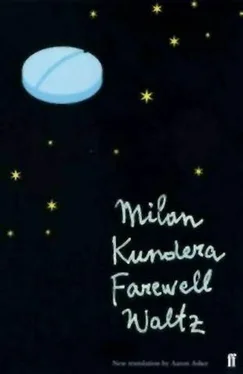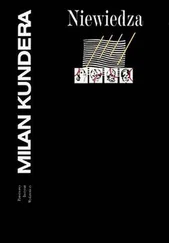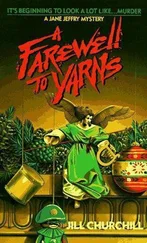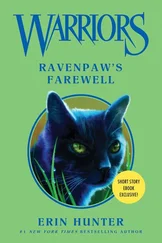Just then the telephone rang. Skreta picked up the receiver and listened for a moment. His face darkened,
and he said: "I'm busy here right now. Do you really need me?" After a pause he said: "All right. Okay. I'm coming." He hung up and cursed.
"If you've got to go, don't bother about me, I have to leave anyway,'' said Jakub, rising from his chair.
"No, you're not leaving! We haven't discussed anything yet. And there's something we have to discuss today, right? They made me lose the thread. It was about something important. I've been thinking about it since I woke up. Do you remember what it might be about?"
"No," said Jakub.
"Good God, and now I have to run to the thermal building…"
"It's better to say goodbye like this. In the midst of a conversation," said Jakub, and he pressed his friend's hand.
Ruzena's lifeless body was lying in a small room reserved for physicians on night duty. Several people were bustling around the room, and a police inspector was there and had already interrogated Frantisek and written down his statement. Frantisek once more expressed his desire to be arrested.
"Did you give her the tablet, yes or no?" asked the inspector.
"No!"
"Then stop saying you killed her."
"She always told me she was going to kill herself," said Frantisek.
"Did she tell you why she was going to kill herself? "
"She said she was going to kill herself if I kept spoiling her life. She said she didn't want a child. She'd rather kill herself than have a child!"
Dr. Skreta entered the room. He gave the inspector a friendly wave and went over to the deceased; he lifted her eyelid to examine the color of the conjunctiva.
"Doctor, were you this nurse's supervisor?" asked the inspector.
"Yes."
"Do you think she might have used a poison available in your practice?"
Skreta turned once more to Ruzena's body to examine the particulars of her death. Then he said: "It doesn't look to me like a drug or substance she could have gotten in our offices. It was probably an alkaloid. The autopsy will tell us which one."
"But where did she get it?"
"It's hard to say."
"At the moment, it's all very mysterious," said the inspector. "The motive too. This young man has just revealed that she was expecting a child by him and she wanted to have an abortion."
"That character was forcing her to do it," Frantisek shouted.
"What character?" asked the inspector.
"The trumpeter. He wanted to take her away from me and make her get rid of my child! I followed them! He was with her at the Abortion Committee."
"I can confirm that," said Dr. Skreta. "It's true that this morning we took up her request for an abortion."
"And the trumpeter was with her?" asked the inspector.
"Yes," said Skreta. "Ruzena declared that he was the child's father."
"It's a lie! The child's mine!" Frantisek shouted.
"Nobody doubts that," said Dr. Skreta, "but Ruzena had to declare a married man as the father so the committee would authorize termination of the pregnancy."
"So you knew it was a lie!" Frantisek shouted at Dr. Skreta.
"According to the law, we have to take the woman's word. Once Ruzena told us she was pregnant by Mister Klima and he confirmed her declaration, none of us had the right to assert the contrary."
"But you didn't believe Mister Klima was the father?" asked the inspector.
"No."
"And on what do you base your opinion?"
"Mister Klima has been to this town only twice before, and briefly both times. It's highly unlikely that a sexual relationship could have taken place between him and our nurse. This is too small a town for me not
to hear about such a thing. Mister Klima's paternity most likely was just a deception with which Ruzena persuaded him to appeal to the committee to authorize the abortion. This young gentleman here surely would not have consented to an abortion."
But Frantisek was no longer hearing what Skreta was saying. And he stood there unseeing. All he heard were Ruzena's words: "You're going to drive me to suicide, you're definitely going to drive me to suicide,'' and he knew that he had caused her death and yet he did not understand why, and it all seemed inexplicable to him. He stood there face to face with the unreal, like a savage confronted by a miracle, and all of a sudden he had become deaf and blind because his mind was unable to conceive of the incomprehensibility that had swooped down on him.
(My poor Frantisek, you will wander through your whole life without understanding, you will only know that your love killed the woman you loved, you will carry this certainty like a secret mark of horror; you will wander like a leper bringing inexplicable disasters to loved ones, you will wander through your whole life like a mailman of misfortune.)
He was pale, standing immobile like a pillar of salt and not even seeing that an agitated man had entered the room; the new arrival approached the dead woman, looked at her for a long while, and caressed her hair.
Dr. Skreta whispered: "Suicide. Poison."
The man shook his head violently: "Suicide? I can swear by all I hold dearest that this woman did not take
her own life. And if she swallowed poison it has to be murder."
The inspector looked at the man in amazement. It was Bertlef, and his eyes were burning with angry fire.
Jakub turned the ignition key and drove off. He passed the spa town's last villas and found himself in a landscape. He headed for the border, and he had no urge to hurry. The thought that he was driving this way for the last time made this landscape dear to him and strange. He kept feeling that he did not recognize it, that it was different from what he had thought, and that it was a pity he could not stay longer.
But he also told himself that no postponement of his departure, whether for a day or several years, could in any way change what it was now making him suffer; he would never know this landscape more intimately than he knew it today. He must accept the thought that he was going to leave it without knowing it, without having exhausted its charms, that he was going to leave it as a debtor and creditor both.
Then he thought again about the young woman to whom he had given the sham poison by slipping it into a medicine tube, and he told himself that his career as
a murderer had been the briefest of all his careers. I was a murderer for about eighteen hours, he told himself, and he smiled.
But then he raised an objection: It was not true, he had not been a murderer for only such a brief time. He was a murderer right now and would remain one for the rest of his life. For it mattered little whether the pale-blue tablet was poison or not, what counted was that he believed it was and yet had given it to a stranger and done nothing to save her.
And he set about reflecting on all of it with the unconcern of a man who regards his act as existing merely in the realm of the purely experimental: His act of murder was strange. It was a murder without a motive. It had no aim of gaining something or other for the murderer's benefit. What exactly, then, was its meaning? Obviously, the only meaning of his act of murder was to teach him that he was a murderer.
Murder as an experiment, as an act of self-knowledge, reminded him of something: yes, of Raskolnikov. Raskolnikov, who murdered in order to know whether a man has the right to kill an inferior human being, and whether he would have the strength to bear that murder; by that murder, he was interrogating himself about himself.
Yes, there was something that brought him close to Raskolnikov: the pointlessness of the murder, its theoretical nature. But there were differences: Raskolnikov wondered whether a superior man has the right to sacrifice the life of an inferior one for his own benefit.
Читать дальше










